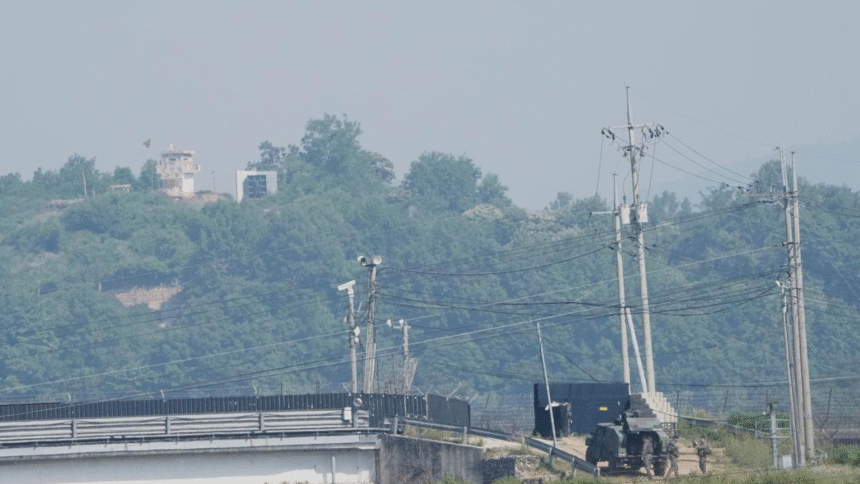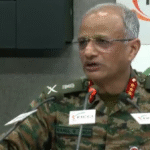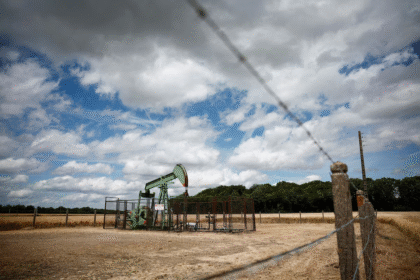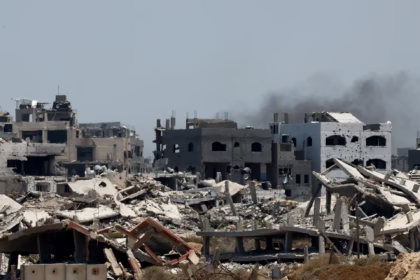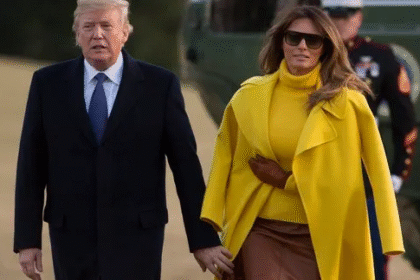North Korean Crosses World’s Most Heavily Fortified Border into South Korea — 1st Incident in 2025
In a rare 2025 incident, a North Korean defector crosses the world’s most heavily fortified DMZ border into South Korea, raising security and diplomatic tensions
SEOUL, South Korea — An unidentified North Korean man crossed the heavily fortified land border separating the two Koreas and is in South Korean custody, the South’s military said Friday.

The South’s Joint Chiefs of Staff said the military identified and tracked the individual near the central-west section of the military demarcation line and conducted a “guiding operation” before taking the person into custody Thursday night.
It said authorities plan to investigate the border crossing and did not immediately say whether they view the incident as a defection attempt.
The Joint Chiefs said it notified the U.S.-led United Nations Command about the incident and had not detected any immediate signs of unusual military activity by the North.
According to the Joint Chiefs, a South Korean military team approached the unarmed North Korean man after detecting him and, after identifying themselves as South Korean troops, guided him safely out of the mine-strewn Demilitarized Zone that divides the two Koreas.
Border tensions have flared in recent months as the two Koreas traded Cold War-style psychological warfare, with North Korea sending thousands of trash-filled balloons toward the South and South Korea blasting anti-Pyongyang propaganda through loudspeakers.
Since taking office last month, South Korea’s new liberal President Lee Jae Myung has made efforts to rebuild trust with North Korea, halting the frontline loudspeaker broadcasts and moving to ban activists from flying balloons carrying propaganda leaflets across the border.
In April, South Korean troops fired warning shots to repel about 10 North Korean soldiers who briefly crossed the military demarcation line. The South’s military said the soldiers returned to North Korean territory without incident and that the North didn’t return fire.
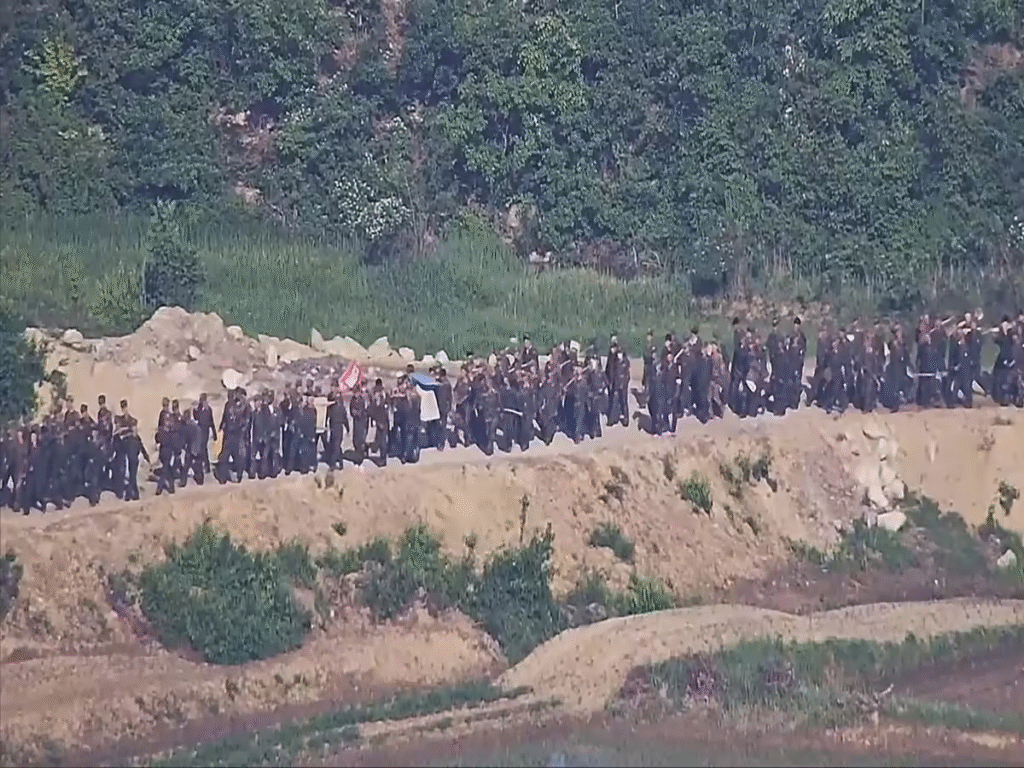
In June last year, North Korean troops crossed the border three times, prompting South Korea to fire warning shots. Experts suggested these crossings may have been accidental, occurring as North Korean troops added anti-tank barriers, planted mines and carried out other work to bolster border defenses amid escalating tensions between the Koreas.
Diplomacy between the war-divided Koreas has derailed since the collapse of denuclearization talks between Washington and Pyongyang in 2019, which prompted North Korean leader Kim Jong Un to accelerate the expansion of his military nuclear program and threaten nuclear conflict toward Washington and Seoul. South Korea’s previous conservative government responded by strengthening its combined military exercises with the United States and Japan, which the North condemned as invasion rehearsals.
On Thursday night, July 3, an unidentified North Korean man breached the DMZ and was taken into custody by South Korean troops. The South Korean Joint Chiefs of Staff tracked the individual near the central-western stretch of the military demarcation line (MDL). The man—found unarmed—was guided across the mine-laden zone and evacuated to a secured location
Surveillance pinpointed him near a shallow stream on the MDL’s western sector around 3–4 a.m. local time, after which he remained immobile in nearby undergrowth during daylight. Under cover of night, he continued south, eventually contacting South Korean troops around 11 p.m., who identified themselves and escorted him securely .
South Korean military authorities reported no unusual military activity from North Korea following the crossing and notified the U.S.-led United Nations Command
Authorities are currently investigating the incident to determine whether this was a defection or another form of unauthorized crossing .
Extreme Risk: Crossing the DMZ on foot is exceedingly perilous. The 248‑km‑long, 4‑km‑wide buffer zone houses over 2 million landmines, barbed wire, watchtowers, and heavily armed patrols
Highly Secured Border: Under Kim Jong Un, the DMZ is increasingly fortified—fences, minefields, anti-tank barriers, and reportedly a shoot-on-sight order—making such crossings virtually impossible
Rare for Civilians: Most defectors follow the China route; only a handful have ever navigated the DMZ directly
Small Numbers: In Q1 2025, only 38 North Koreans successfully defected to the South—down dramatically from 1,000+ yearly pre-pandemic
North Korea launched trash-filled balloons into South Korea, prompting condemnation
In response, South Korea broadcast anti-Pyongyang messages via loudspeakers—actions recently halted under President Lee Jae Myung
In April, South Korean troops fired warning shots at approximately 10 North Korean soldiers who briefly crossed the MDL; no violence occurred and those soldiers returned north
Prior incidents include three North Korean troops crossings in June 2024, also met with warning rounds
President Lee Jae Myung, inaugurated late June, has adopted a liberal stance, halting loudspeaker broadcasts and restricting activist balloon flights near the border
Despite these confidence-building measures, North Korea continues border fortifications—anti-tank barriers, new fencing, revised guard orders—as internal controls and regime defense .
After the breakdown of U.S.–North Korea “denuclearization talks” in 2019, Kim Jong Un accelerated nuclear/military expansion, heightening regional tensions
South Korea and allies have responded with assertive joint military exercises, raising North Korea’s security concerns .
The defector appears to have carefully chosen a weakly fortified segment of the frontier—near a stream with softer terrain devoid of mines . He took calculated steps: night-time movement, daytime concealment, and cautious navigation—suggesting meticulous planning rather than randomness .
Civilian Intent or Military Operation?
He identified himself as a civilian, and there’s no sign of military involvement or weapons. That indicates a likely defection, not espionage or provocation
Implications of a Success
This crossing underscores a significant gap in North Korea’s ostensibly impregnable DMZ defenses:
- It challenges Pyongyang’s “shoot-on-sight” deterrence.
- It highlights possible public disillusionment, loosening loyalties.
South Korea’s intelligence and military agencies are examining whether this defection reveals broader unrest in the North
The last DMZ defection occurred approximately a year ago, involving a North Korean soldier on the east coast
In August 2024, a staff sergeant defected via the western DMZ
- North Koreans commonly defect via China, often paying traffickers and navigating multiple borders .
- The most famous high-risk defection: Oh Chong-song, who crashed a vehicle across the border in 2017 under gunfire, and survived.
These examples illustrate that while DMZ defections occasionally occur, they remain exceedingly rare and dramatic.
South Korea’s Immediate Response:
- The individual is undergoing interrogation to assess motives and affiliations.
- A review of surveillance and early-warning systems has been initiated.
- South Korea reiterated contact with the UN Command to ensure transparency.
North Korea’s Expected Reaction:
- Official silence or “hostile state” rhetoric is anticipated.
- Border measures may intensify—fences, traps, shoot-on-sight enforcement.
Broader Peninsula Tensions:
- Any forced crossing risks escalating into military confrontation; tension has been rising since 2019
- While President Lee seeks dialogue restoration, Pyongyang may perceive this as opportunistic or threatening.
- The U.S.–South Korea alliance remains alert; UN Command coordination underscores readiness.
Human Rights and Defector Welfare:
- The crossing emphasizes the dire conditions prompting defectors—economic collapse, repression, food scarcity.
- South Korea currently hosts ~34,000 North Korean defectors, who face integration challenges—social stigma, unemployment, cultural alienation.
Policy Considerations:
- Should South Korea revise its resettlement support programs?
- Will North Korean border tightening—mines, fences—threaten civilians and escalate tensions?
- Could this incident amplify global calls for humanitarian oversight and surveillance?
Regional Diplomacy:
- The South is under pressure—domestically and from allies—to manage defectors humanely, while holding North Korea accountable.
- The U.S. and UN may be drawn further into managing tensions and potentially easing sanctions in exchange for stability.
Read Also : Shubman Gill Makes History in England – Outperforms 7 Pakistan Captains in Just 1 Match


